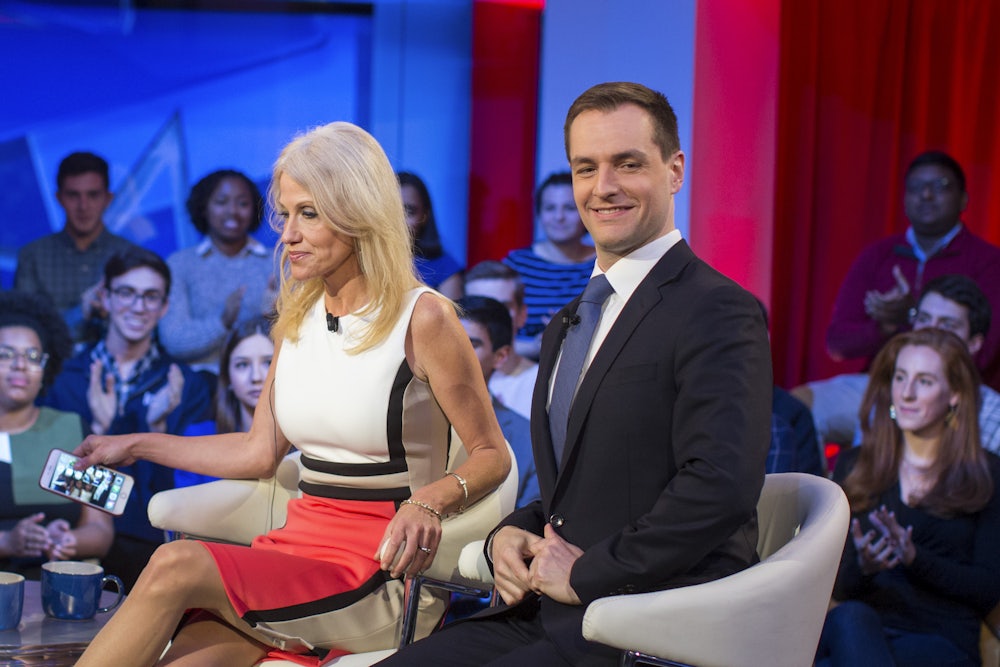It doesn’t feel like it, but it’s been less than a month since Donald Trump won the election. That’s partly because our long national nightmare is still ongoing: Hillary Clinton may be lost in the woods, but Trump is still very much in campaign mode, holding rallies and engaging in a never-ending series of publicity stunts. Meanwhile, his crew of unlikely white nationalist Davids have had time to gloat about orchestrating the upset of the century and taking down the Clinton Goliath.
On Thursday the two sides met at the Kennedy School of Government to discuss their takes on the election and—surprise, surprise—after one of the dirtiest presidential races in history (or at least since the advent of electricity), nerves were still raw. The event has been described as a “shouting match” and a “brawl,” and featured the campaigns bickering over why Trump won. Clinton’s team blamed James Comey and Trump’s overtures to white supremacy, while Trump’s team stuck out their tongue and made farting noises. (They also made the argument that Clinton did not have a message for working class voters.)
Though Clinton’s campaign manager Robby Mook—arguably the person with the most egg on his face—acknowledged that there were messaging problems and that the campaign was not prepared for a change election, he made a number of arguments that were at best dubious. For one thing, Mook blamed millennials for not turning out enough for his candidate, and claimed that they gravitated toward third-party candidates in the final days of the race. This may very well be true, but the fact that late undecided voters broke heavily away from Clinton suggests the blame lies with her and her campaign rather than with the voters.
Similarly, Mook leaned heavily into the Comey letters. It has been deemed the principal factor in those late undecided voters breaking away from Clinton, but that migration started before October 28, when the first letter was made public. More importantly, Comey’s letter wasn’t what caused the Clinton campaign to build a lackluster operation in Michigan and Wisconsin, or to focus on tactics that it believed would run up the score, instead of consolidating a winning coalition of likely Democratic voters.
Millennials and James Comey are convenient scapegoats for people like Mook, who are auditioning for jobs. But if former Clinton campaign hands want to find out who really cost her the election, they should look in the mirror.
This post has been updated.
